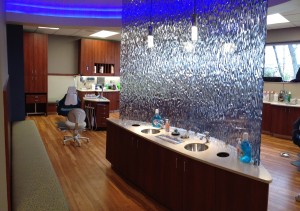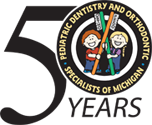Wisdom teeth are the third set of molars that typically try to or fail to erupt between the ages of 17-24. Not everyone has wisdom teeth and they are not necessary for the health or function of our mouths as they rarely fit in modern society because our more frontward teeth are much less abused by the refined diets we consume today.
For those who do have them and can fit them in the back of the mouth, they can be very useful teeth if they are properly aligned. However, most people do not have the proper alignment. Dr. AJ Ker explains that, “because the back of the mouth is rarely long enough to accommodate these teeth, their frustration with eruption can lead them to do some unfortunate things. They can push or damage adjacent teeth, tip over and become impacted, and many types of jaw cysts are associated with these teeth, especially when they are trapped under the gums or impacted.”
Wisdom tooth impaction means that they are trapped under either soft tissue or bony tissue and are not visible in the oral cavity. This can allow for bacteria to seep in which can lead to infection. Partially impacted teeth that are only partially visible are also very risky and are also more susceptible to tooth decay and gum disease because they are hard to reach and clean.
Your child’s dentist can detect if they have wisdom teeth from their dental X-rays. Your dentist may recommend that these teeth be removed even before they become a problem for precautionary reasons. This can avoid painful and complicated removal later after the roots of the tooth have had a chance to fully develop and become entangled with adjacent healthy structures like nerves or other teeth. Generally, the older the patient, the more recovery and healing time is expected so we usually try to manage these under the age of 25 at the latest.
 The removal procedure depends on how the tooth is positioned. If the tooth is not impacted and easily visible, then the procedure is fairly easy. If the tooth is underneath the gums or embedded in the jawbone, it may require an incision into the gums and possible removal of part of the bone. Usually, the dentist will numb the area with a local anesthetic. If you feel you need other sedation, this is something you can discuss with your dentist or oral surgeon. Monitoring of wisdom teeth is another reason to be sure that your children do not miss their six-month checkups.
The removal procedure depends on how the tooth is positioned. If the tooth is not impacted and easily visible, then the procedure is fairly easy. If the tooth is underneath the gums or embedded in the jawbone, it may require an incision into the gums and possible removal of part of the bone. Usually, the dentist will numb the area with a local anesthetic. If you feel you need other sedation, this is something you can discuss with your dentist or oral surgeon. Monitoring of wisdom teeth is another reason to be sure that your children do not miss their six-month checkups.
Your child’s dentist or orthodontist will be able to tell you if your child does have wisdom teeth and can monitor them before they become an issue for him or her. We have a team of trusted oral surgeons that we routinely work with and are familiar with treating our patient family to refer you to when the time is appropriate for wisdom tooth removal. If you have any other questions concerning wisdom teeth, please do not hesitate to ask any of our well-trained doctors at your next visit.
About Pediatric Dentistry and Orthodontic Specialists of Michigan, the offices of Drs. Delaney, Plunkett, Ralstrom, Makowski, Thanasas, Ker, and Associates
Pediatric Dentistry and Orthodontic Specialists of Michigan have specialized in pediatric dentistry and orthodontics since 1968. Our family-friendly office gives patients and families a more comfortable and consistent experience with dentistry from the very beginning. The pediatric dentists treat children from newborn to 18 years of age while our orthodontists provide care for both children and adults, including being an Invisalign preferred provider. The ability to treat all special needs patients reaches beyond our facility, which has treatment rooms available for children who require additional privacy. Valued hospital affiliations allow dental services to be performed at DMC Children’s Hospital and St. John’s Hospital Macomb when needed. Our specialists are also on staff at Henry Ford and Beaumont hospitals.




